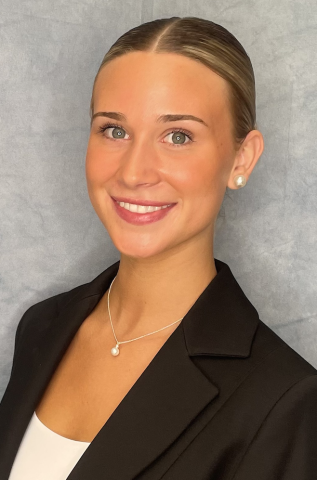
In an era defined by fast-paced technological and scientific innovation , the need for skilled communicators is more urgent than ever. Translating complex information such as technological policy or life-saving medical treatments into clear and accessible language is essential for public understanding and engagement. At the University of Pittsburgh, the Communication Department equips students with the tools to meet this challenge.
Abigail Kosmalski, a senior studying Communication Rhetoric and Public and Professional Writing, with a minor in Information Sciences and certificate in Communication of Science and Technology, exemplifies how students can use communication coursework to bridge the gap between STEM and the public.
“My goal is to empower humanities students - their communication skills and sociocultural knowledge is essential to support ethical and accessible innovations,” Kosmalski said.
Kosmalski added the Communication Rhetoric major after discovering its flexibility and relevance to her interests.“The Communication major is so customizable,” Kosmalski said. “People are really able to find their niche.”
Her academic path was shaped by key Communication and English Composition courses, particularly Digital Humanity, which introduced her to the intersection of technology and the humanities.
“Digital Humanity introduced me to a totally new way of thinking about and even speculating about technology,” Kosmalski said. “I became very interested in what ways we as communications students can add in humanities’ based ideas like ethics, accessibility and social information into ideas about technology.”
Throughout her time at Pitt, Kosmalski has contributed to making technical and pharmaceutical research more accessible through roles as a news writer for Pitt’s School of Computing and Information and as a Global Communications Team Intern for CSL Pharma.
At CSL, Kosmalski worked to translate scientific and clinical information for public audiences, a role that she found deeply fulfilling and that allowed her to apply the communications skills she learned in Communication Rhetoric classes to real world challenges.
“The information that I got to work with is information that makes a big impact on peoples’ lives,” Kosmalski said. “Being able to share medical information regarding treatments in a way that is accessible, understandable and engaging to audiences that may not have a medical background is very important.”
Kosmalski acknowledges the challenges of entering STEM-related fields from a humanities background, but sees this interdisciplinary approach as essential for progress.
“There are definitely barriers to not having a technical background within the science and technology field, but I think that there are also big advantages that come from being able to see things from a different point of view because your experiences and the way you view different situations will be totally different from, say, an engineer or a chemist,” Kosmalski said. “I think that that’s the beautiful part of being a humanities student within a STEM field, that’s the part that I want to share with others and help them experience.”
The Communication Department’s emphasis on creativity, strategic thinking, and ethical engagement has helped Kosmalski shape her academic and professional identity. She encourages other students to follow their interests and apply communication skills to fields they care about.
“A piece of advice that I always follow myself and encourage others to follow is to pursue what interests you to the absolute fullest extent,” Kosmalski said. “If something sparks your passion, then that will take you further than anything else.”
Abigail Kosmalski is one of many Communication Rhetoric students who have successfully customized their academic path, pairing their majors with complementary minors and certificates to explore a wide range of subjects. Students interested in using their communications skills to make meaningful contributions to healthcare, medical research and technology initiatives are encouraged to explore the Department of Communication Undergraduate Course Catalog.
